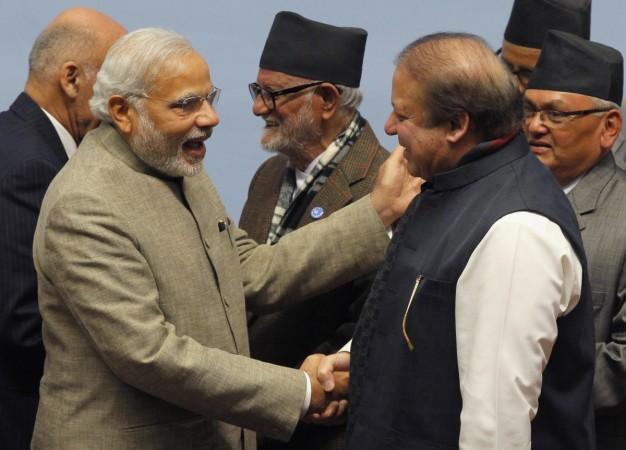
Pakistani Prime Minister Nawaz Sharif, who is leading only the second elected civilian government in the 70-year-old history of the country to complete its tenure, received temporary relief on Thursday (April 20) when a five-judge bench of the Supreme Court cited "insufficient evidence" to disqualify the former in the Panama Papers scandal and ordered an extensive probe. Three out of the five judges gave their verdict in favour of the premier.
But the PML-N leader's problems do not end here. According to the Pakistani media, the five-judge bench asked the government to set up a Joint Investigation Team comprising members from bodies like the Military Intelligence, National Accountability Bureau, Inter-Services Intelligence and the Securities and Exchange Commission of Pakistan to probe the case over the next two months.
Also read: Panama Papers case: Pak Supreme Court orders JIT to probe corruption allegations against PM Sharif
With the next general elections just a year away, the PML-N leadership has tried to put on a brave face following the verdict, and reasserted that Sharif's popularity across Pakistan is something the Opposition cannot expect to match.
The PML-N is right in this regard. Despite all his shortcomings, the 67-year-old Sharif is the only leader at the moment who can give Pakistan's civilian administration stability. If he falls, Pakistani politics could decline into the turmoil it is known for, making India apprehensive.
Sharif is likely to meet his Indian counterpart Narendra Modi on the sidelines of the Shanghai Cooperation Organisation summit in Astana, Kazakhstan, in June, despite bilateral tensions, and New Delhi will not want an implosion in Pakistan's politics now.
Sharif tried to better relations with India
Sharif, following his election as PM for the third time in 2013, tried to achieve a number of goals: improving relations with India; talks with the Pakistani Taliban, and also bringing former president Pervez Musharraf (who toppled Sharif in a coup in 1999) to book. But he has been unable to achieve any of these targets over his four years because the Pakistani Army has not been eager to back him.
With regard to Modi's India, Sharif has shown intent time and again to take forward relations, but the ubiquitous disruptions on the ground have not let him. In fact, relations between the two countries after the attacks in Pathankot and Uri, and the worsening situation in Kashmir, ratcheted up tensions to a level where even Sharif was forced to speak out strongly against India.
The cracks between civil and military authorities over the ISI's backing of terrorist groups were also made evident by a reporter at the Dawn. It became amply clear that the Sharif government was trying to call a spade a spade, but given Pakistan's decade-old political culture, was finding it difficult to bottle the genie.
Pak Army doesn't want to take up direct rule, but wants to keep Sharif weak
The Pakistani Army, today, doesn't wants to take over the country's reins directly, for it will not only burden the institution — which is facing pressure fighting terrorists — but also invite the wrath of teh global community in terms of sanctions.
Pakistan's middle-class is gradually rising and its democracy is gaining a foothold (its civilian rule has not been disrupted for a decade now, which is quite an achievement by its standards) which means the army's quest for another coup will not be as easy as it used to be in the past.
A weak Sharif in power is a better option for them and with an arrangement in place where neither party will or can remove the other, Pakistan has reached a kind of equilibrium, and it will continue till the next election, said French scholar Christophe Jaffrelot.
A power vacuum in Pakistan is bad news for India and South Asia
But if Sharif slips before the next elections, then the equilibrium will be disrupted and with no civilian force capable enough to give the country the required stability (neither Imran Khan nor the late Benajir Bhutto's kin) and the army showing a reluctance to overstretch itself, Islamabad could be headed for a vacuum.
In fact, the country could once again lose the plot and fall back to the days of uncertainty, despite elections scheduled for next year. For India in particular, and South Asia in general, a nuclear-powered state going rudderless is never good news.
What can India do while Sharif spends worried nights? It has very little option, but it certainly needs to back civilian authorities in Islamabad to keep the army, fundamentalists, and also outside influences (the US and China will not take Pakistan's collapse lightly) at bay.
With the fires in Kashmir refusing to die down, the Modi government will not want to see a power vacuum in Pakistan and experience the problems the first NDA prime minister Atal Behari Vajpayee experienced in the late 1990s and early 2000s.

















